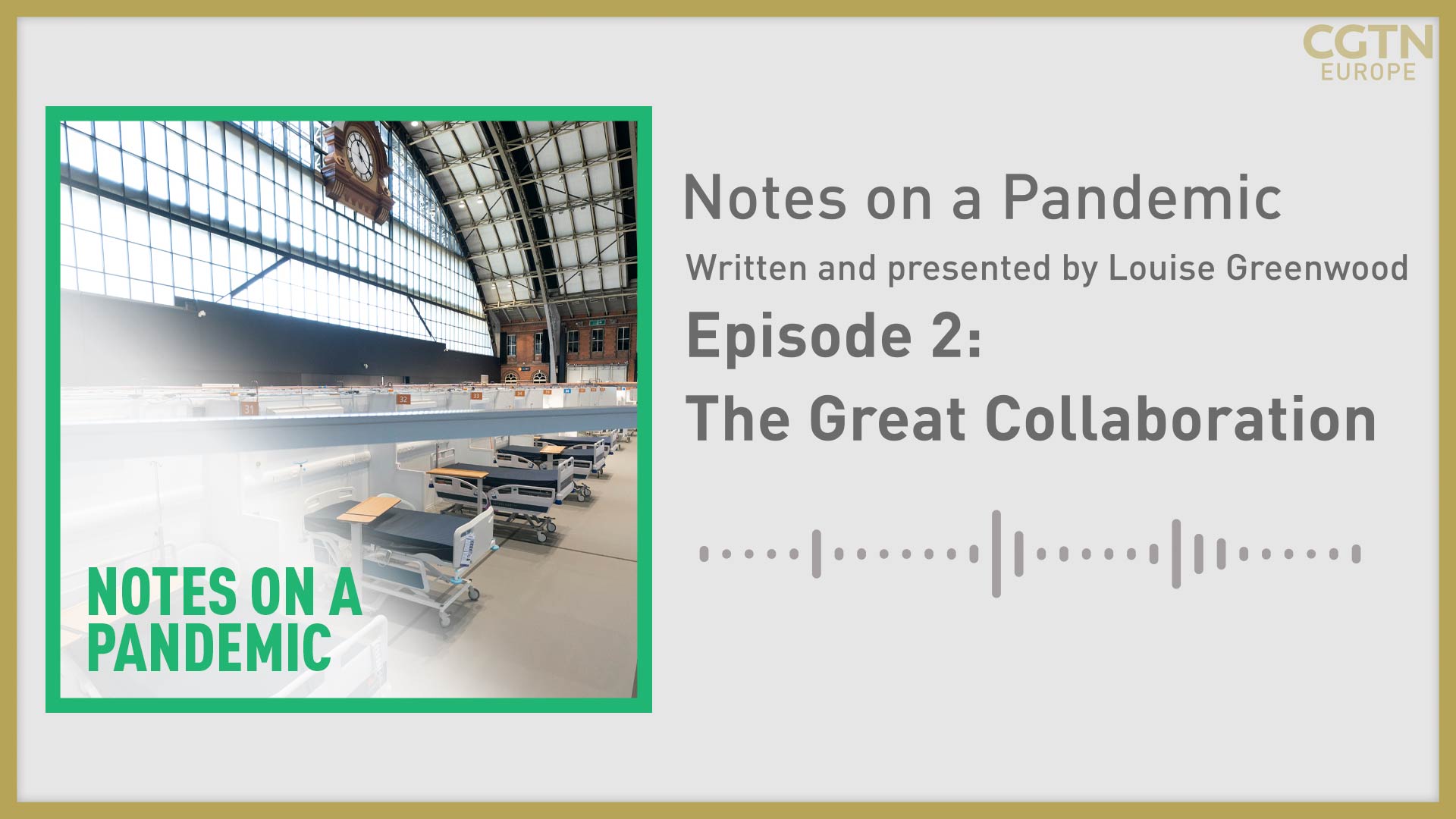16:44

Almost from the point at which COVID-19 was officially declared a pandemic, hospitals across the EU were faced with a serious problem: How to find enough acute hospital beds for the sick and adequate protective equipment for their staff.
In this episode of Notes on a Pandemic, we speak to those who unexpectedly found themselves on the front lines of the response to the outbreak, working together to save lives.
The UK's Nightingale Hospitals program was an ambitious scheme to create 22,000 acute care beds in a matter of weeks.
Ged Couser was one of the architects tasked to work alongside the army to convert convention centers and other public places into emergency COVID-19 hospitals.
He was the site manager of the Manchester Nightingale and spoke to CGTN Europe about how it was done.

Military personnel working to set up a temporary hospital in London in March. /AP/ Stefan Rousseau/
Military personnel working to set up a temporary hospital in London in March. /AP/ Stefan Rousseau/
"[The army] have got this experience of going to Kosovo, Afghanistan or Iraq and building [hospitals] in the sand," he said.
"This is a very different thing ... they changed people's thinking, which I think was important.
"I think the first briefing was from a major from the army who made everybody's mind sort of switch to that sort of approach to getting it done quickly."
At the same time, hospitals scrambled to acquire supplies of personal protective equipment (PPE) for their front-line health care workers.
Shortages and stockpiling, however, made this an increasingly challenging task.
Josef Prusa, CEO of the 3D printer supplier Prusa Research in Czechia, worked independently to create a unique design for face shields, obtaining EU certification for the result.

Josef Prusa at his 3D printing farm in Czechia. /Prusa Research/
Josef Prusa at his 3D printing farm in Czechia. /Prusa Research/
People in more than 130 countries around the world, where Prusa sells its printers, were able to downloaded the designs from the internet and produce personal protective equipment themselves.
The list of those that took part includes the Ford Motor Company in the U.S., Skoda Auto and Mercedes-Benz.
"As the pandemic came to us in Czechia, we knew that we wanted to help out … [but] we wanted to do something meaningful," Prusa told CGTN Europe.
"I got in touch with the Czech Ministry of Health as we wanted to do this properly … It was very wonderful as the doctors we worked with never saw 3D printing and they were amazed."
Join us for The Great Collaboration in which we talk to these inspiring individuals and find out about the surprising collaborations and innovations at the heart of the pandemic response.
Click here to subscribe.
Presenter: Louise Greenwood. Production assistant: Katherine Berjikian. Audio editing: Terry Wilson. Video editing: James Sandifer.